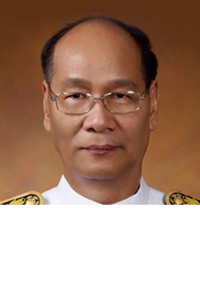About two weeks ago, through a Facebook group, more than half a million Thais expressed a desire to leave Thailand to settle down in countries such as the United States, Canada, the United Kingdom, Germany, Sweden, Norway, Australia and New Zealand, among others.
The specific reasons vary but are generally attributable to poor public service management in Thailand, particularly dissatisfaction with relatively poor public health provisions, education quality, human safety, and, last but far from least, economic security and employment. For many, this may be just ve a symptom of the greener pastures syndrome, but this "leave Thailand movement" warrants a closer examination of how the Thai government runs the public organisations that provide goods and services for citizens.
Compared to more socio-economically advanced countries, public services fail to focus on serving members of the public.
On one hand, citizens are treated like serfs by bureaucrats with delusions of grandiosity instead of a pride in carrying out valuable public duties. On the other, the citizens see themselves not as consumers of a product they have paid for with their taxes, but as grateful beneficiaries of generosity bestowed upon them by the government.
It is an ingrained top-down attitude which politicians and the bureaucrats have little interest in changing. Bureaucrats and politicians have a symbiotic relationship in Thailand when it comes to the running of public organisations.
Politicians foster congenial relationships with bureaucrats whose technical expertise in crucial areas such as taxation, infrastructure, health, education, finance, agriculture, transportation and industry, makes them invaluable allies when it comes to maintaining the support of their local bases.
It is a relationship that is prevalent all over the world and was coined "the bureaucratic polity" by Fred Riggs, a political scientist and pioneer in administrative model building. It implies that the bureaucracy itself has become the major instrument of power when it comes to governing the country.
Yet despite this administrative milieu, Thailand has been able to achieve some level of economic development, rapid urbanisation and better education that have given rise to a middle class, better medical welfare, lower mortality and better family planning, for instance.
Thailand has been praised for its healthcare policy. It has been able to control deadly contagious diseases such as Avian Flu and Severe Acute Respiratory Syndrome. To its credit, Thailand overcame these challenges with style and was hailed by the international community as one of the most successful stories of human development services.
Then came the threat of Covid-19 in January 2020. While the whole world was searching for a strategy and a model to tackle this problem, Thailand reacted intuitively, employing a healthcare management model that evolved out of its experiences in dealing with past tropical disease outbreaks in the past, and was able to temporarily contain the spread of the deadly novel coronavirus.
Indeed, it was the concerted efforts of the leaders of both public and private organisations that served for the benefit of the whole country. It is essential to note here that the term "leadership" encompasses the provision of services. As VitalLeaders.com said in an article in 2018, “To Lead is to Serve - If serving's beneath you, leadership's beyond you”. This embodies the concept of servant leadership, coined by Robert K. Greenleaf in 1970, which calls for serving before leading.
This concept seems to have evaded those governing in Thailand. The general mentality of the bureaucrats is that one can serve better by directing.
On 25 March 2020, the prime minister issued an emergency order to consolidate all the power and responsibilities of various government agencies dealing with the prevention, mitigation, and eradication of Covid-19 within the Office of the Prime Minister.
Unwittingly he also opened a Pandora's box, which, in effect, hamstrung the bureaucracy that was supposed to be tackling the spread of the virus.
By consolidating, the prime minister has done a disservice to all Thais. Now the only service offered is the lip service paid to frequent and regular promises by the government of a staggeringly high number of doses of vaccine that will "soon" be available.
Contrary to what many in the government may think, Thais are highly discerning consumers when it comes to health care.
They follow the news through social media and are aware that because of the government's hesitation in importing vaccines, people are now being deprived of the chance of immunisation when it really matters.
Despite the Thai Food and Drug Administration having approved vaccines by Johnson & Johnson and Moderna, it remains unknown when the shipments will arrive in Thailand. Many seem keen to wait for these high efficacy formulas as evidenced by the unexpectedly low number of sign-ups for the current programme.
At the moment, the public is left with just two choices of vaccine and has become frustrated. They are used to choices when it comes to healthcare. A good example being Thailand's successful family planning programme that offers without coercion a plethora of contraceptive options.
Thailand has always employed a "cafeteria" approach to healthcare policy, with authorities providing a full menu of choices.
Yet Covid vaccinations have bucked thus trend and that may explain the commotion that is now surrounding and undermining the government's vaccination plans.
